Hocus Bogus
Like it or not, we’re living in an era of history where truth is becoming increasingly more irrelevant as “fake news” and “alternative facts” become more commonplace. With the decline of truth happening in real-time, it was only a matter of time before someone in the board game space took a stab at a game that takes inspiration from this real-life trend. The Game of Lies is a trivia party game where you and your friends gather around to suss out the bullcrap and figure out what’s real, what’s fake, and who’s bluffing.
The Game of Lies operates in the same vein as many trivia party games like Trivial Pursuit, Cranium, and Quelf. Each team takes a turn by answering a question, and if they get it right, they forward a number of spaces. The first team to make it all the way to the center of the board and defeat the final challenge wins the game.
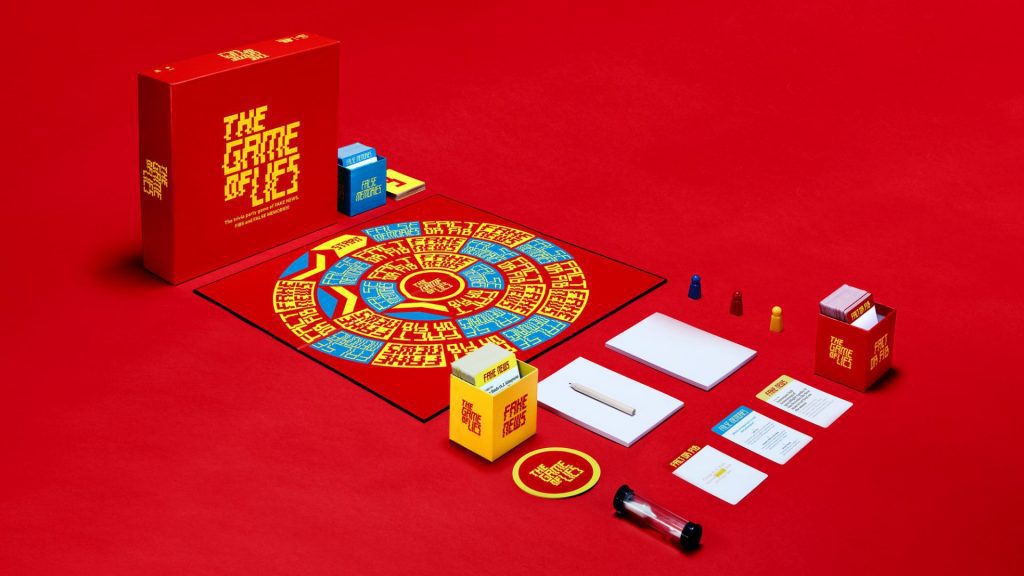
It may sound quite familiar, but that’s about as far as the similarities go. Everything else in the game takes inspiration from the “alternative facts” trend. The categories are all based on lies, how many spaces you move presents an opportunity to lie, and the endgame presents the “wine in front of me” logical conundrum as seen in the classic film The Princess Bride (and isn’t the first game to take inspiration here). While the latter two mechanics are unique twists on the genre, the bread-and-butter of any trivia party game lies in the strength of the categories, and it’s here that The Game of Lies finds both its highest highs and lowest lows.
Trifling Pursuit
The first category is appropriately titled “Fake News” in which one team reads aloud a newspaper headline, publishing date, and a brief blurb from the article itself, then passes the card to the active team. That team has a total of 60 seconds to scan the article and try to identify which detail was changed to make a real news headline… well, fake. From my plays, this is potentially the most hit-or-miss category in the game. There are some that are really fun, like trying to remember when the last Indiana Jones movie came out. But there are some that feel like a total crapshoot. Finding out that you were wrong because Robert Mugabe resigned after 37 years instead of 28 doesn’t feel like you lost so much as the game won. The sheer amount of information contained on these cards can be overwhelming, and anything on it could be wrong, from the date the article was published, to the name of a city, to the number of years referenced in the article. When you’re playing against nothing but cold facts and historical data, it can start to feel a bit like a high school history test instead of a fun party game.
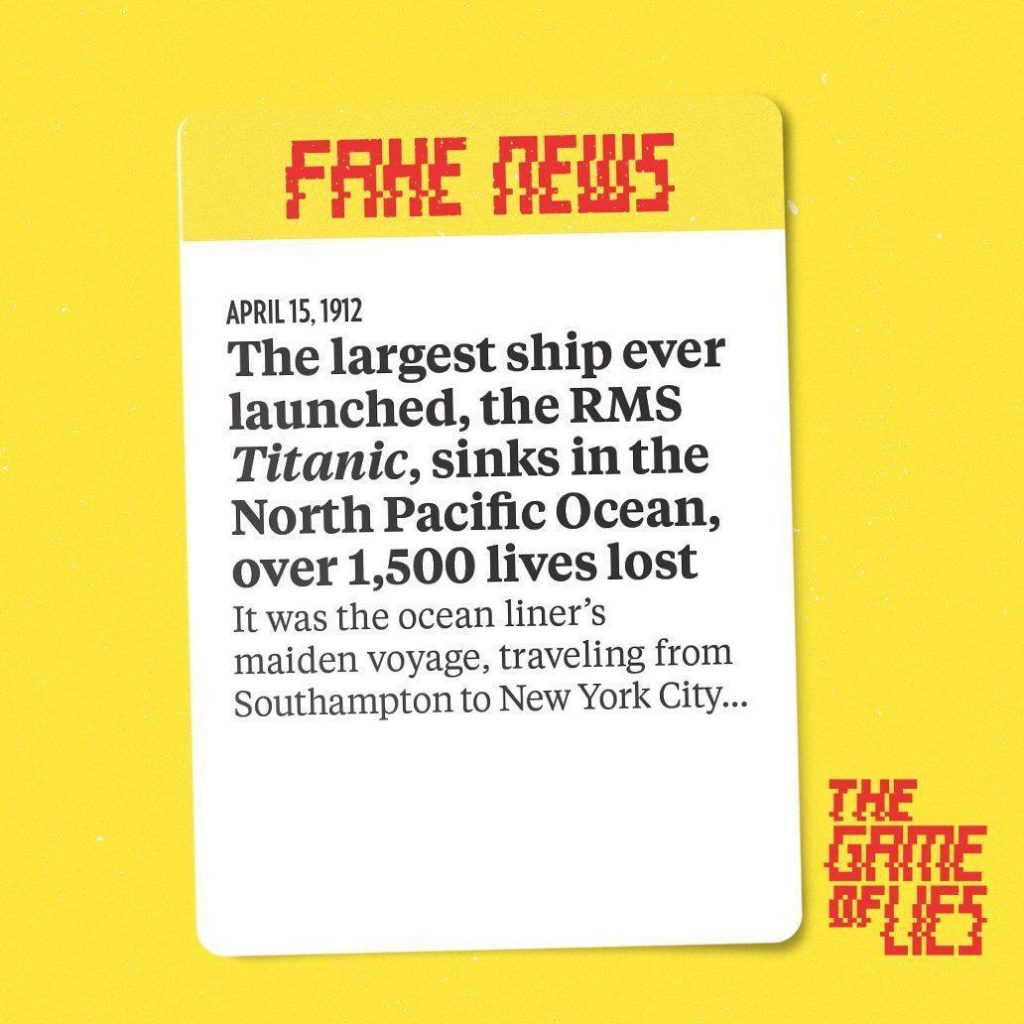
The second category, “Fact or Fib”, is far more successful. It takes the same concept of a piece of information being wrong but puts the burden on the players themselves to make a convincing lie. Each card in this category has a completely true statement written on it, but a word or phrase within the statement is highlighted. A player on the inactive team will draw the card, read it to themselves, then read it aloud to the active team with the option to change the highlighted text. For example, it’s true that Billy Bob Thornton is afraid of antique furniture… but is he afraid of baby elephants? Here, The Game of Lies shifts the focus of figuring out the truth from nitpicky fact-finding to a combination of knowledge and ability to read other players. It’s a fun bit of bluffing that adds another layer to the game that is missing from “Fake News”.
The third and final category, “False Memories”, was soundly our house favorite when we played. The concept is a simple twist on the old icebreaker game “two truths and a lie”. Each card contains a selection of two real things from film and television history and one that was written for the game as a lie. It’s up to the active player/team to figure out which of these things isn’t real, and it’s harder than you think. Between fits of laughter at the sheer ridiculousness of some of the shows mentioned, there’s still a game to play to figure out which is just too ridiculous to make up.
American television is no stranger to crazy reality TV shows, which admittedly make up a sizeable portion of the cards we experienced. I do wish there was slightly more variety overall besides movies and TV shows, but it is a deep well to draw from, so it’s understandable why the designer went this route. This is also where we learned about My Big Fat Obnoxious Boss, an actual television show where contestants compete to work for a fake company run by a fake boss that is an actual chimpanzee. That’s not me bluffing, that’s a real show. 2004 was wild.
The one downside to this overall fun category is that in my group’s experience with the game, we found that when we encountered a particularly offensive or oppressive premise for a show (plenty of misogynistic pitches in there), more often than not they turned out to be the fake ones created by the game, rather than real ones. This isn’t a game that prides itself on being edgy or offensive, so I think we were all caught off-guard by the inclusion of some of the more disrespectful pitches.
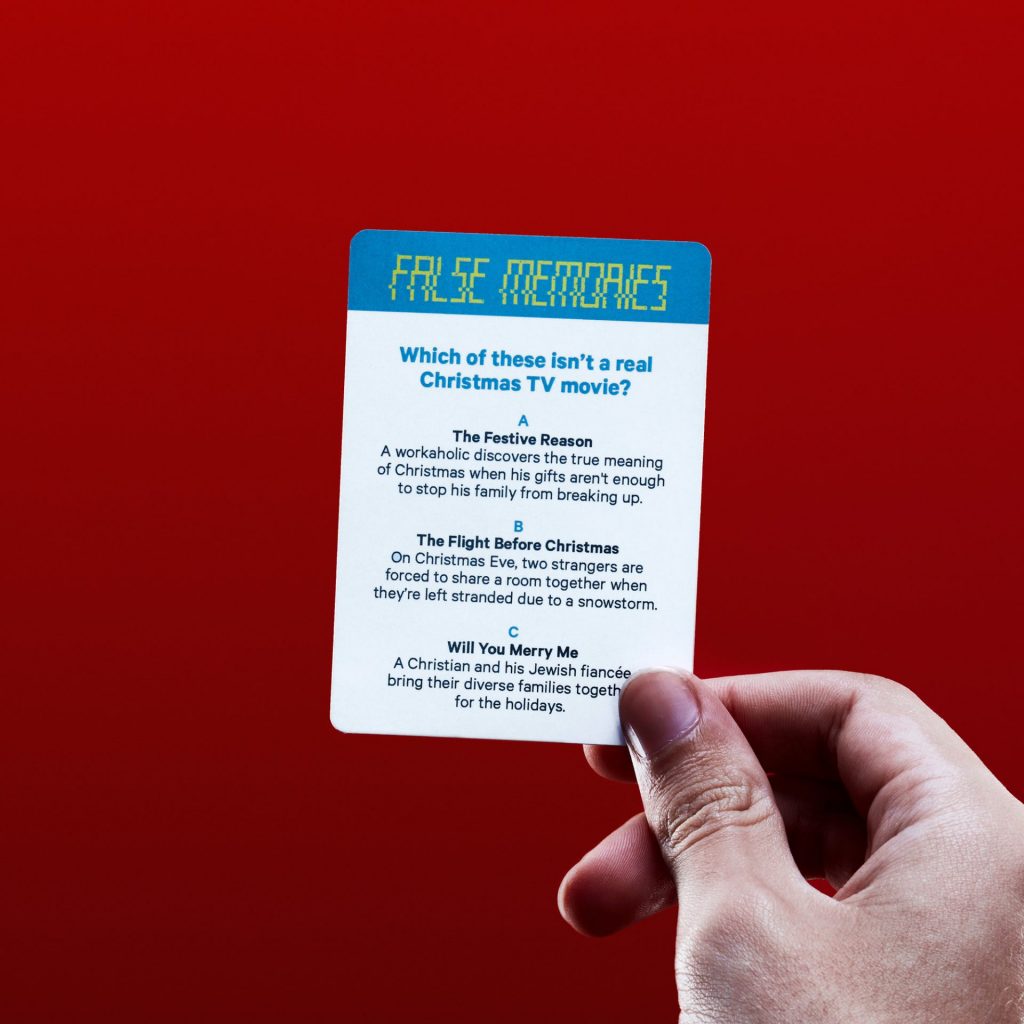
Final Thoughts
The categories largely work, and the rest of the mechanics really fill in the finer details of connecting the theme to the gameplay. If you get a question right, you move a number of spaces. Unlike in other games, where you’d simply roll a die and move that many spaces, in this game, you draw a card from the score deck ranging from one to six. After looking at the card privately, the active team declares a value. It’s now up to the other teams to decide whether it’s true or not. If it’s true and they call the bluff, they suffer the penalty of moving back that many spaces instead.
But if it’s false and they call it… they’ll stop the active team from getting points. Similarly, for the final round, you engage in a simple game. There are two tokens: one wins you the game, one is blank. The team going for the win gets to look at their token, then they can either choose to swap with their opponent or keep their tokens the same. The opponent, without looking, then gets the same choice. At the end of it all, your ability to win comes back around to your ability to bluff, lie, and read the room.
The Game of Lies isn’t revolutionary, but it doesn’t need to be. It’s a nice departure for the trivia party genre of games, which has been languishing for a while, deep in the sea of rereleases and special editions of Trivial Pursuit and Cranium. Similar to Wits & Wagers disrupting the genre in 2004, there’s a potential here for The Game of Lies to be your new go-to game when the in-laws are in town, or you have a group of friends over who want to play something a bit lighter. For my group, it was a bit too light and hard to take seriously as a competitive game, and we’re all competitive people. We wanted more of the bluffing and less of the absurd “needle in a haystack” trivia. However, if trivia party games and lighter fare are right for your group, it could easily replace Trivial Pursuit in most board game collections. Just be warned that you’ll get to see which of your friends and family are good liars, or worse, they’ll all find out that you are.


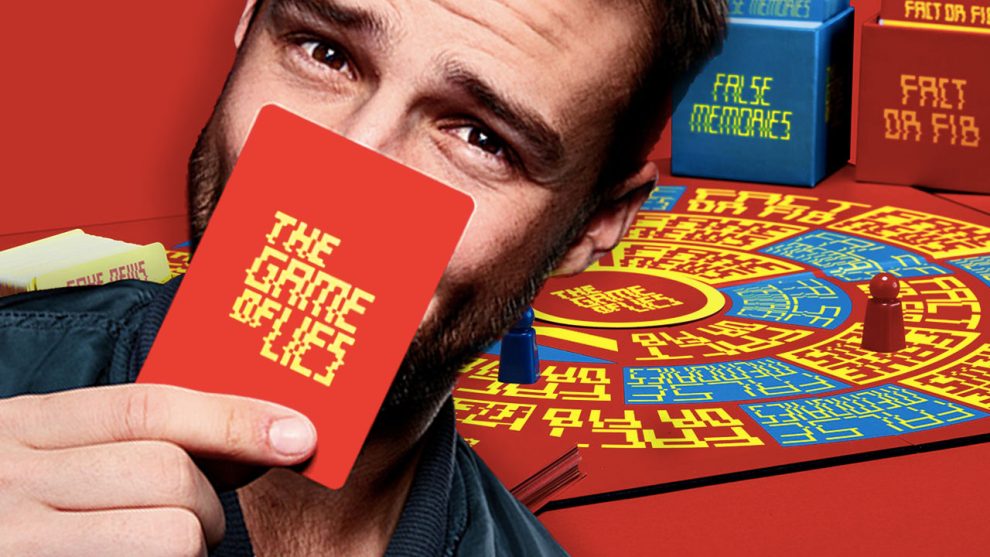
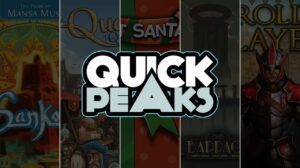


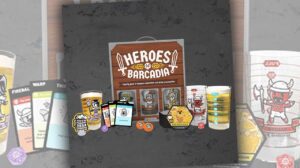

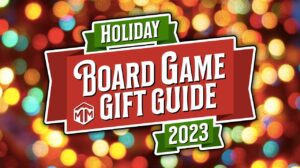


Add Comment